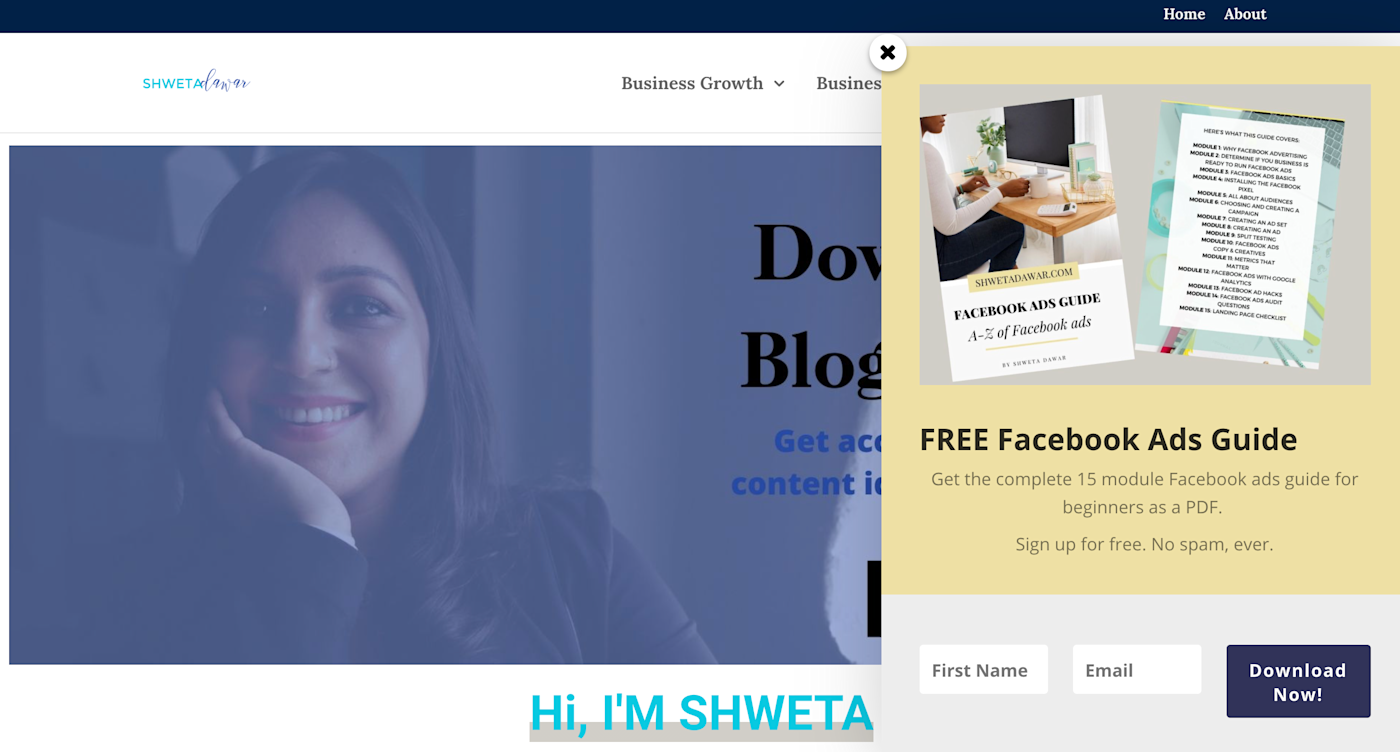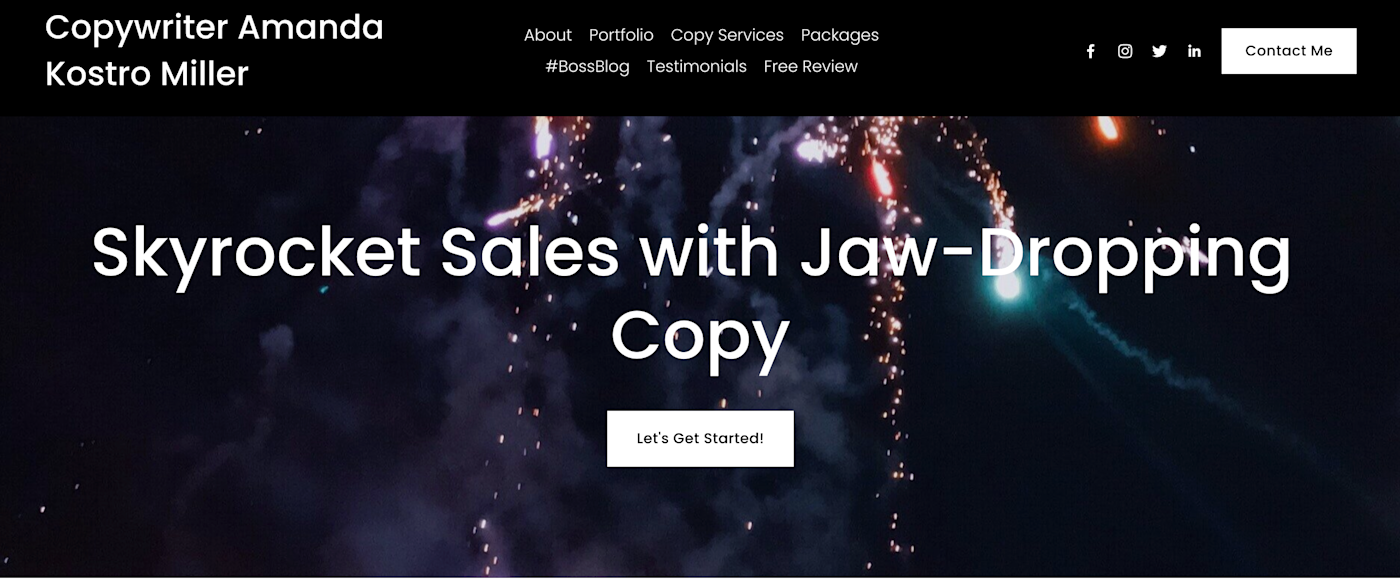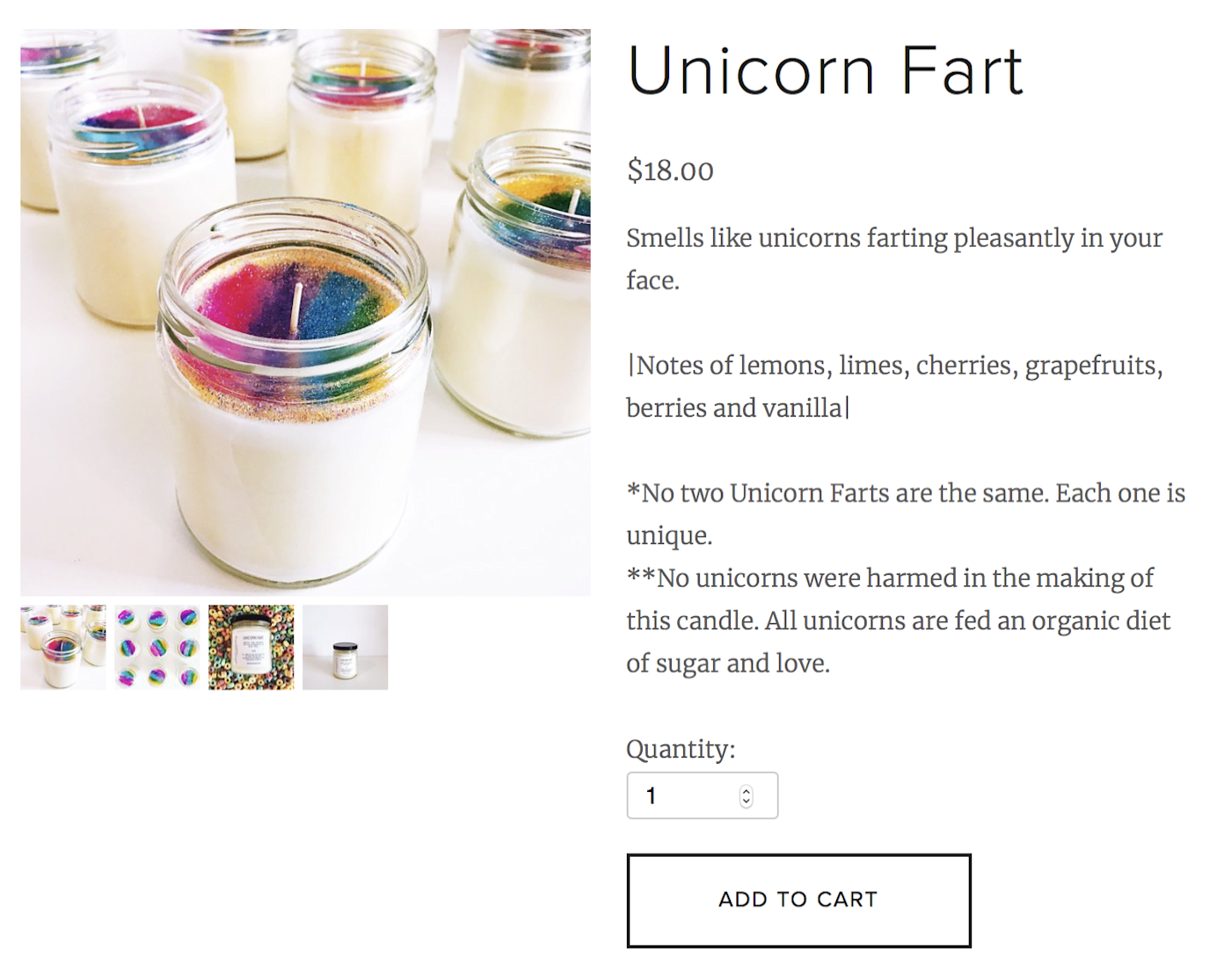Driving traffic to your small business website is a never-ending struggle. SEO! Backlinks! Social promotion! As a small business owner, I'm beyond familiar with how hard it can be to get people to your site—and convert them.
But my business is freelance writing (amandacopy.com), so I know the power of the words on your page. It's not just about attracting traffic—it's about attracting the right traffic. And then convincing them that what you're offering is what they need.
Because let's be honest, it is.
As you scale your small business marketing, take a look at these 4 ways to use marketing automation to grow your business.
Targeted messaging 101: Content writing vs. copywriting
Yes: SEO and paid ads are both important for getting people to your site. But neither of those things will help you persuade customers to buy or sign up when they land on your site. Once they find you, you need to wow them with gorgeous site design—that's a given. But visitors also need something that many businesses don't deliver on: targeted messaging.
What you say is the critical connection between you and your customer. And I'm not talking about what you say on a sales call—I'm talking about the first thing a customer reads on your landing page: the headline, subhead, and body copy.
The words you put right there will determine if your visitor hits "buy now," "sign up," "share this," or "contact us." What are the right words to put there? It depends on your business, of course, but let's get into some definitions first.
Content writing is the words you use to educate, entertain, or inspire your target audience. On a website, content writing is used in blog posts, articles, video scripts, eBooks, and infographics.
Copywriting is the words you use to sell to, persuade, or get action from your target audience. It's the more standard "marketing" writing. Copy is the messaging on your homepage, sales pages, landing pages, email campaigns, banner ads, and even the contact page.
Knowing how to use both content writing and copywriting will help you create effective, targeted messaging. You'll nurture your audience, get them to trust you, and get them to choose you.
Learn how to breathe life into your copywriting.
Content marketing writing educates and entertains, purposefully
Content marketing writing is content writing on a mission. It goes above and beyond just keeping your blog updated—it's any content that meets some of the following goals:
Connect with your audience, but not with the direct intention to sell
SEO (drive more organic traffic to the site)
Attract customers who are ready to convert
Attract customers who are still browsing
Educate potential customers
Strengthen relationships with existing customers
Help purchasers get the most out of your product or service
So as you're creating marketing content, you need to consider your goals, your audience, the format, and the delivery. Why are you writing this content? Who are you writing it for? What format will it be in? And how will the content get to your audience?
If you have several target audiences or want to use multiple forms of content, you'll need to map this stuff out for each campaign. Here are some examples to get you started.
SEO topic clusters for blog posts
Is your blog strategy you sitting at the computer, thinking of a topic...and then writing about it? You could be getting way more qualified traffic by creating topic clusters.
Take a relevant industry topic, and fan it out into 10, 20, even 50 little pieces. Every piece is a single blog topic you can expand upon. This can let you take advantage of more long-tail SEO keywords that have less competition, driving more traffic to your site.
Useful freebies to build email lists
People love free stuff—but only when it's useful. Website freebies (also called "lead magnets") are the perfect way to get people deeper into your marketing funnel.

There are all sorts of lead magnets: anything from a free eBook to a webinar. It's a low barrier to entry (because free): all you're asking people to do is give you their email address. And that's the key. Then, just use targeted messaging in your emails to groom them for a conversion.
Transformational case studies
Case studies are your chance to show potential customers how your service or product can help them. Yes, it's clearly a push for your business, but it's not a direct sales push—it's legitimately showing how people use your product or service and what customers can expect from you. FOMO is a strong motivator for B2B clients, and case studies inspire it.

Strategic copywriting: Your best sales rep
Copywriting, on the other hand, is marketing writing designed to get action from customers. Great copywriting gets conversions from the exact target audience you're trying to reach. Every piece of web copy should hit on at least one of these points:
How you solve the customer's problem
How you make their life better
What your company believes in
How you show off your brand's unique persona
Why this customer should choose you over someone else
What action you want them to take
What their next step is from here
How the customer can easily take that next step
And all this needs to be clear from the first headline they read. Go into copywriting with a vision of your ideal customer, knowledge of the call-to-action you want them to take, a solid brand voice, and an understanding of how your product is going to help that customer.
And the most important thing: keep it short and sweet.
Homepage copy that captivates
Don't waste digital real estate with a headline that reads, "Welcome to [Insert Company Name]!" Make your first headline the most important message you need to tell your customer.
What do customers need to hear to take action right now? Tell them who you are, what you do for them, and what their next step should be. Here's what my homepage looks like as an example.

Product descriptions that convince them to buy
Whether you're a retail site or sell professional services, every business needs strategic copy that persuades customers to hit "buy now," "book," "sign up," or "contact me." Your copy should reflect your brand voice while also describing what it is people are actually going to get from you.

Sales page copy that actually sells
The customer is so close to the sale, so the copy here needs to make all the right points in the most concise, easy-to-read way possible. Before you go throwing in all those exclamation points and pushy sales tactics, know that your customers are looking for specific things before they commit. Tell them why they should choose you, why the product is a perfect fit, and fearlessly let them know who your product is not meant for. You don't want people using your product or service if it's not for them—that will lead to low customer retention and maybe even bad reviews.
How to build a powerful marketing writing team
Any type of strategic marketing writing requires a specific skillset—and experience. That's why successful small businesses have designated professionals creating content and copy. Ideally, you'll have four key players. You may find a jack-of-all-trades, but keep in mind that scaling up your business requires scaling up your resources too.
Content strategist. A branding mastermind who plans out content creation and ensures that all content aligns with the brand and business objectives.
Content marketer. Someone who directs and executes the content marketing strategy. They may be a writer, but they may also have expertise in other areas and decide to delegate writing tasks.
Copywriter. A marketing writer who writes copy for your website, email campaigns, sales pages, and more.
Content writer. A writer for web content creation, typically for things like blog posts, eBooks, and whitepapers.
With these experts in your arsenal—and a solid understanding of how content can help your business—you'll be ready to create some content that impacts your bottom line.
This was a guest post from Amanda Kostro Miller, copywriter. Contact Amanda for any marketing writing needs at AmandaCopy.com. Want to see your work on the Zapier blog? Check out our guidelines, and get in touch.





